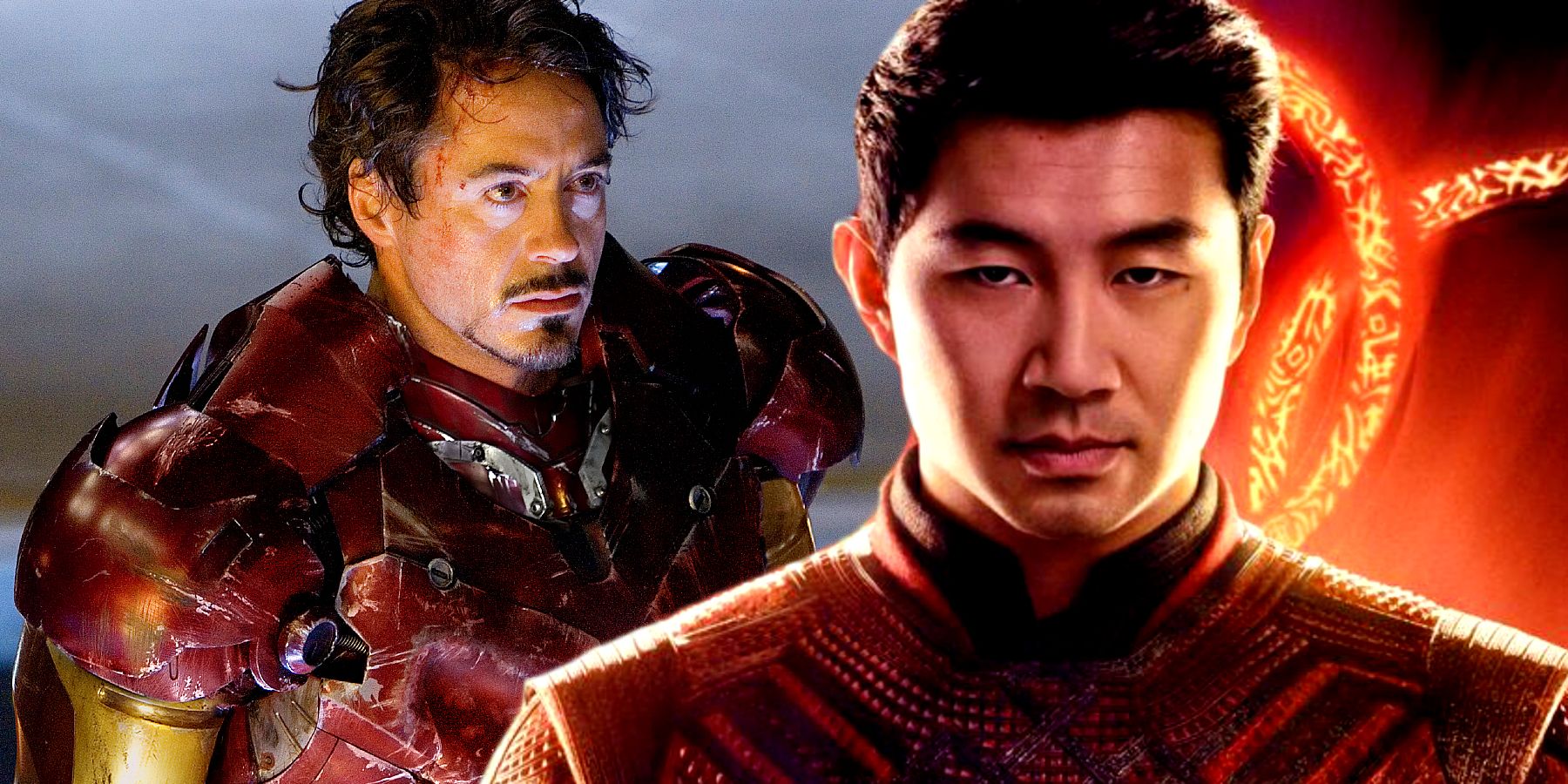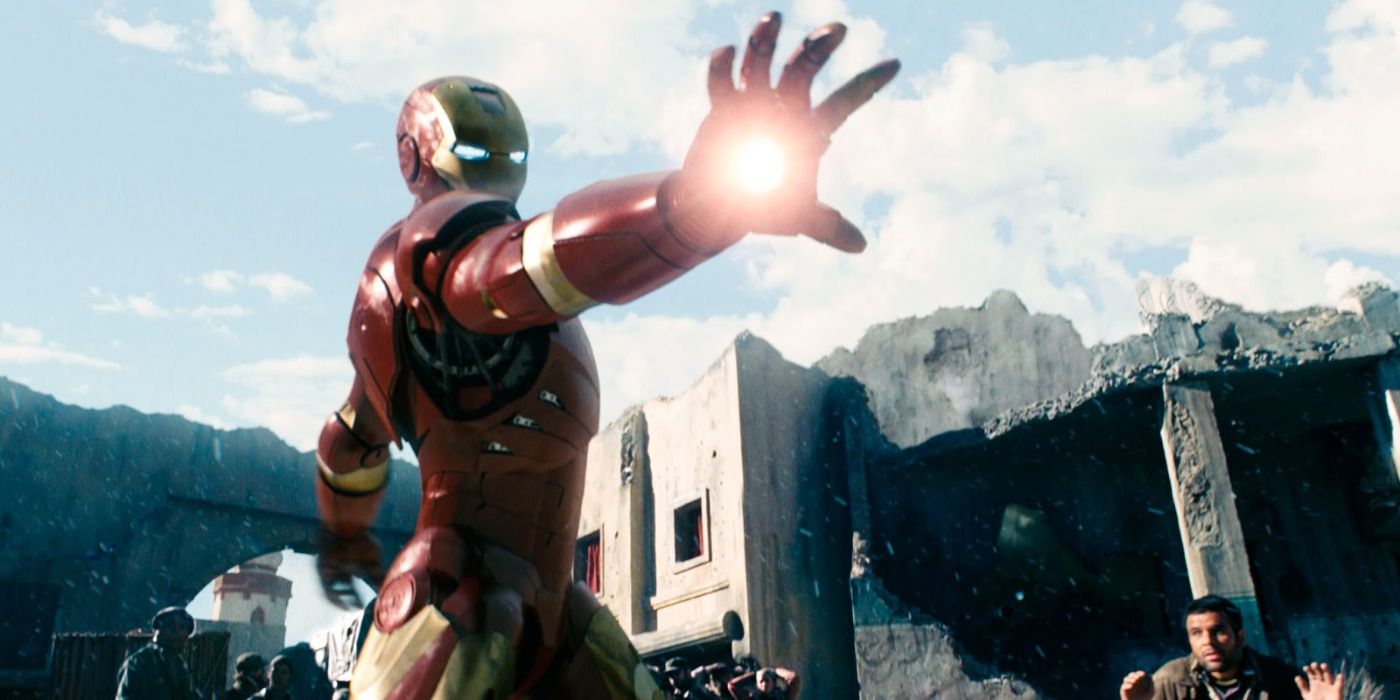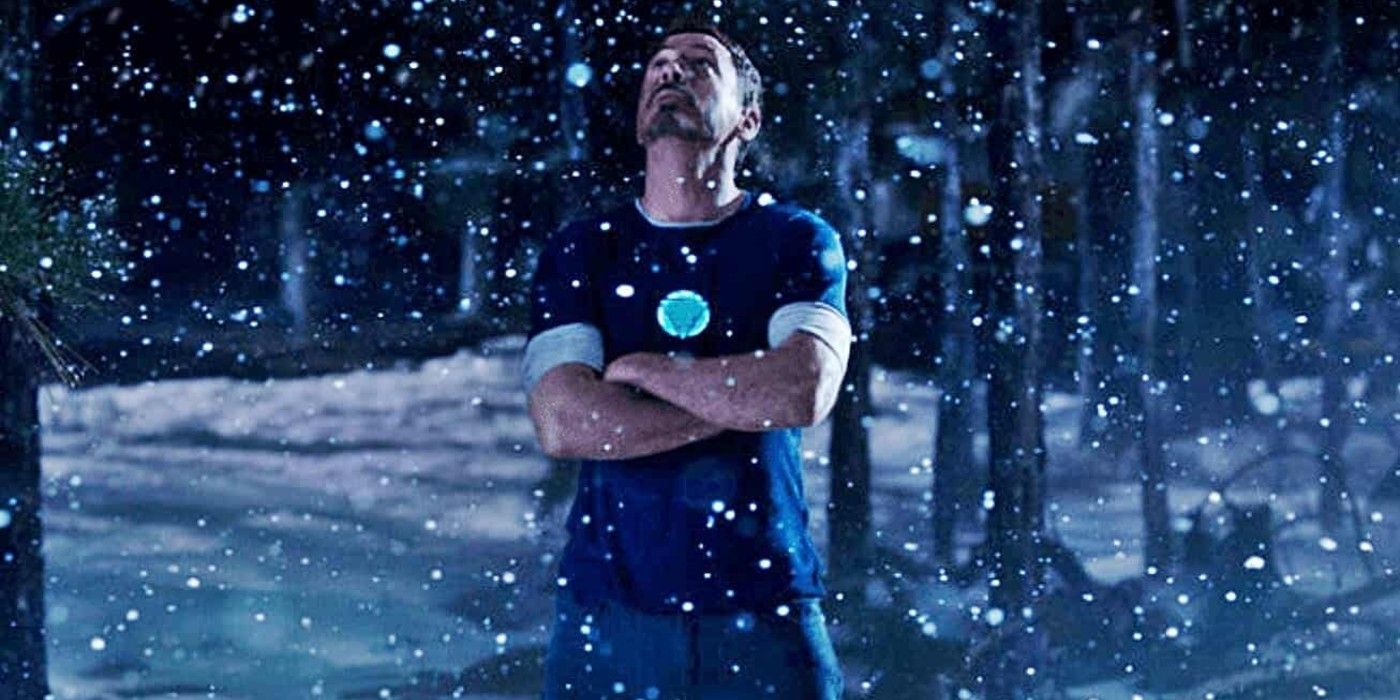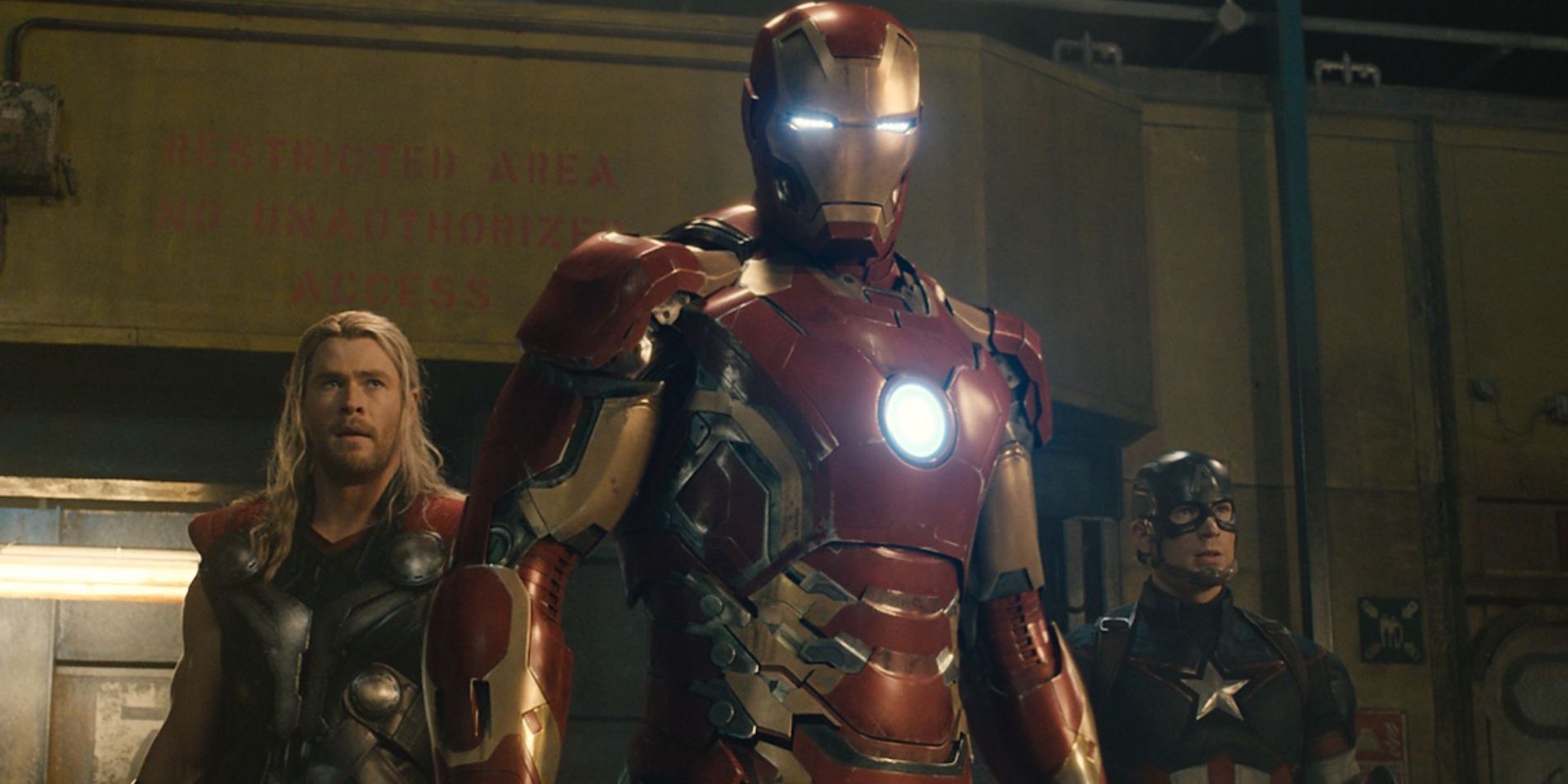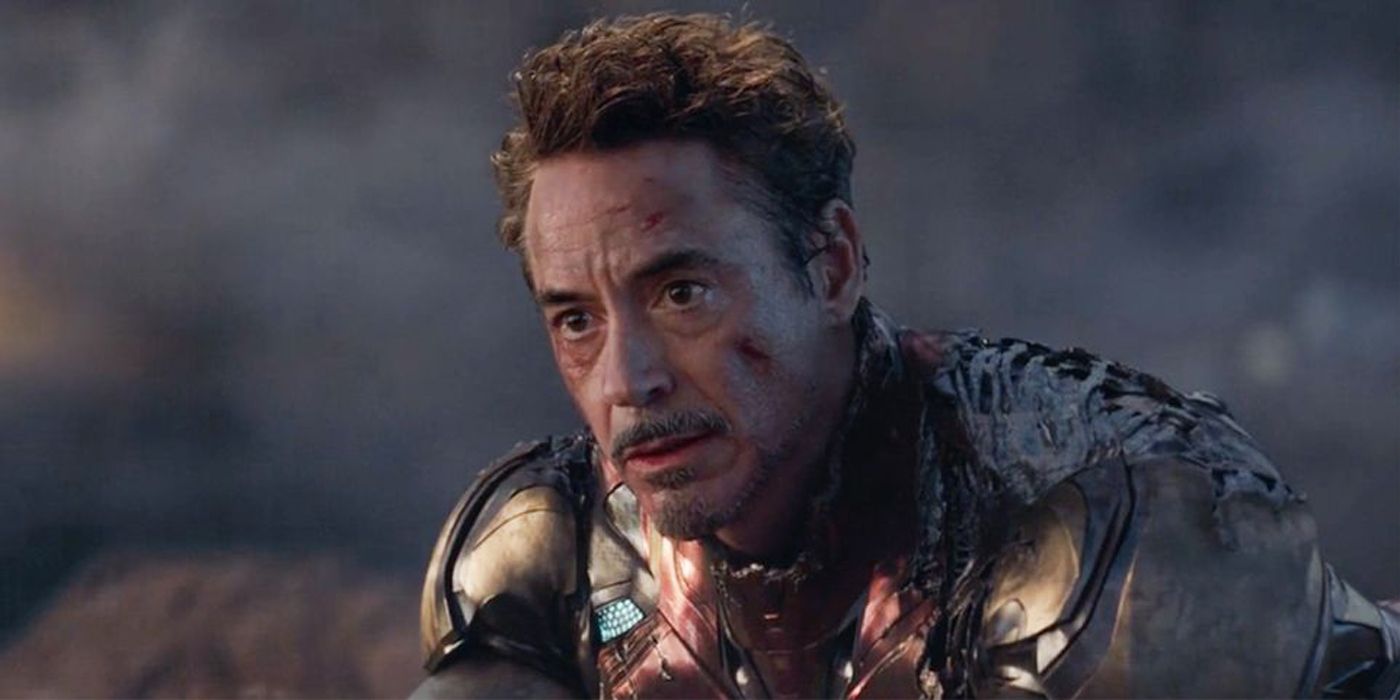Shang-Chi and the Legend of the Ten Rings is one of the first films of Marvel's Phase 4, but if it had been incorporated into Phase 1, Shang-Chi could have significantly changed Iron Man's MCU arc. Despite concerns that the film wouldn't perform to its fullest potential due to the ongoing pandemic, Shang-Chi did well for itself at the box office and succeeded in giving audiences a fresh, creative, and engaging new style of Marvel movie. What's more, it also introduces key new players into the MCU, namely Shang-Chi himself and his father's terrorist organization, The Ten Rings.
The Ten Rings has cropped up in MCU movies and shorts before, but always indirectly. Likewise, Shang-Chi marks the first real introduction of The Ten Rings' immortal leader, Xu Wenwu, who is a take on the Marvel comics character, The Mandarin. With Shang-Chi marking the real beginning of phase 4, the door is now wide open for a new wave of characters, storylines, and styles to make their MCU debut. And, The Ten Rings organization is now poised to take its rightful place as a known power player within the Marvel universe.
In the Marvel comics, The Ten Rings and The Mandarin are major antagonists to Iron Man. The MCU nods to this in several ways, such as Tony Stark's capture at the hands of an Afghanistan-based Ten Rings cell in Iron Man and the infamous Mandarin debacle of Iron Man 3. But had a Shang-Chi film been incorporated into phase 1, thus introducing the real Ten Rings much sooner and possibly installing Shang-Chi's father as a recurring Iron Man villain, it could have altered the course of Iron Man's journey. Here's how a phase 1 Shang-Chi would change Iron Man's MCU arc.
Iron Man Would Not Be The MCU's Main Character
It seems the MCU is set on Iron Man not coming back after his death in Avengers: Endgame, but up until this point, Tony Stark has been the de facto main character of the entire franchise. While other key heroes like Captain America and Thor have had just as many solo films and play big roles in the events of Phases 2 and 3, Tony Stark is a consistent source of leadership for the Avengers and a focus of most major emotional scenes and developments.
However, had Shang-Chi been incorporated as a Phase 1 film, the titular hero would have had as large a role to play in shaping the MCU as Iron Man. Iron Man and The Ten Rings are firmly interconnected in the Marvel comic canon, so a film that introduced Shang-Chi and his father's organization quickly on the heels of the first Iron Man would likely have given Tony Stark and Shang-Chi equal weight. Whether such a film would have set them up as allies or rivals is hard to say, but it definitely would have seen Tony Stark sharing his spotlight early on in a way that the existing MCU, in which Thor and Captain America's origin stories are far removed from Iron Man's, does not.
Tony Stark's Phase 1 & 2 Character Growth Would Take A Back Seat
The events of both Iron Man 2 and Iron Man 3 hinge on the involvement of The Ten Rings. In Iron Man 2, it's The Ten Rings who help Ivan Vanko get to Monoco to face off with Tony. Iron Man 3 evades using the real "Mandarin," Shang-Chi's father, but still gets a lot of mileage out of its fake figure, Trevor Slattery. But while both Iron Man sequels reference The Ten Rings, neither is truly about the organization or Shang-Chi's family. Instead, they focus on smaller villains and offer Tony lots of space for self-realization and deep personal growth.
Had Shang-Chi debuted in Phase 1, making the real Ten Rings a known entity and setting up Iron Man as its nemesis, Iron Man 2 and Iron Man 3 would have had to focus more on a big-picture narrative in which Tony works to bring the organization down. As is, both Iron Man sequels instead build towards Tony's decision to have the arc reactor removed from his chest in Iron Man 3, the first of many attempted retirements. This character arc is a big part of Tony Stark's MCU story throughout the rest of Phases 2 and 3, in which his actions are often defined by a desire to fix everything and one day get out of the superhero game. With the formidable Ten Rings occupying most of his time and energy early on, Tony probably wouldn't undergo this same trajectory of character development, which would have big implications for his actions later on.
Age of Ultron & Civil War Might Not Happen
The heart of MCU Phases 2 and 3 are the darker, more political Avengers: Age of Ultron and Captain America: Civil War. While all the Avengers have roles to play in these films, Tony Stark is the impetus behind both conflicts. It's his fear that leads to the creation of Ultron and his guilt that leads him to aggressively back the Sokovia Accords. These films, in turn, have huge implications for the end of the Infinity Saga, as Age of Ultron sets up Tony's Endgame sacrifice.
A Tony Stark with years of experience facing off against The Ten Rings would bring a different perspective to both films. While the Chitauri invasion could still shake Tony enough to want a suit of armor around the world, it's also possible that he'd be wary of such an idea after seeing firsthand how corrupt it is that The Ten Rings controls the world from the shadows. Likewise, if Tony Stark had his own Hydra to fight in the form of The Ten Rings, he'd probably see Steve Rogers's point in Civil War about how heroes can't wait for governmental permission in order to act against organized evil. This shift in Iron Man's political stances that an early introduction of The Ten Rings in a Phase 1 Shang-Chi could shape would at the very least alter the context of Tony's actions in Age of Ultron and Civil War.
Infinity War & Endgame Could Fall Flat As Iron Man's Swan Song
An alternate Civil War would change Phase 3 in several ways, but another big impact of a Phase 1 Shang-Chi would be Iron Man's priorities in Avengers: Infinity War and Avengers: Endgame. Tony's actions during both films are deeply connected to his prior history. From his conversation with Pepper at the beginning of Infinity War through his death in Endgame, Tony's desire to move on with his life and stop being Iron Man, as set up in Iron Man 3, is apparent. It also runs parallel to Thanos's desire to find peace after he completes his mission. Similarly, Tony's deep hatred towards Thanos stems from the two characters' eerily similar worldviews, as set up in Age of Ultron.
Infinity War and Endgame work as Tony Stark's final chapter because Thanos is Iron Man's true MCU nemesis. However, if Shang-Chi had debuted in Phase 1 alongside Iron Man, this would have distinguished The Ten Rings. All of Tony's choices and growth throughout the Iron Man sequels and the phase 2 ensemble films would have been tied to his quest to bring the organization down, as Captain America's are tied to Hydra. Thus, the powerful resonance of Tony coming up against Thanos as his evil counterpart at the close of the Infinity Saga would have already been spent on The Mandarin and The Ten Rings. This would dilute the clarity of Tony's motivations throughout Infinity War and Endgame and lessen the impact of his sacrifice. It could even lead to a version of events where Tony hasn't had the right journey to be able to make that sacrifice.
Ultimately, the conclusion of Iron Man's MCU arc in Endgame builds on years of Tony Stark's development into a somewhat reluctant hero haunted by his mistakes and driven to atone for them. This trajectory would be altered by a Phase 1 Shang-Chi, which would have seen Tony's early heroic efforts center around an enormous, unseen, and nearly unkillable enemy, The Ten Rings. This version of events would take Iron Man out of the spotlight, offer Tony less time for introspection and growth, give a different context to his political opinions, and ultimately change the tone of his death. While some things might have stayed the same, including Shang-Chi and the Legend of the Ten Rings in Phase 1 would undoubtedly have changed Iron Man's MCU arc in a big way.

